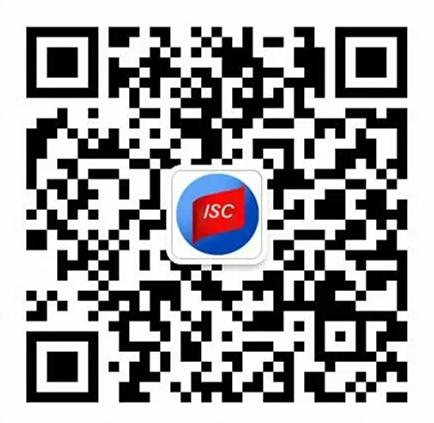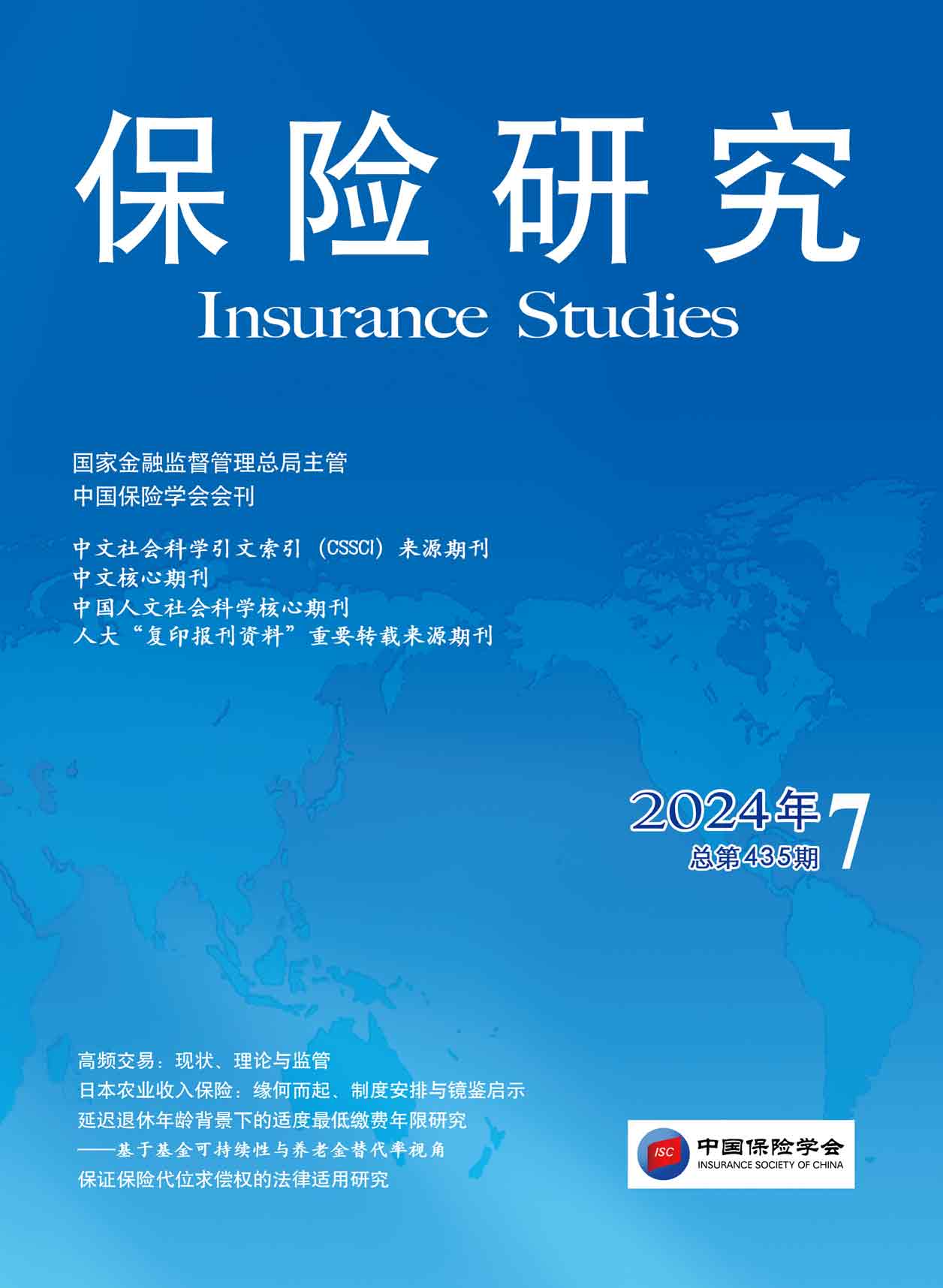
《保险研究》20240701-《高频交易:现状、理论与监管》(李路、章玉贵、贺宇倩)
[中图分类号]F830[文献标识码]A[文章编号]1004-3306(2024)07-0003-15 DOI:10.13497/j.cnki.is.2024.07.001
资源价格:30积分
- 内容介绍
[摘 要]经过二十余年发展,高频交易已经成为海外市场主流的交易模式,学术界对其的认识也从初期的一致赞誉演变成如今的众说纷纭。首先,从理论研究而言,高频交易的复杂性在于如何处理信息与价格的关系、信息的构成结构、信息效率与做市效率的权衡这三个关键性问题。其次,从实证研究而言,检验的核心始终是高频交易与市场流动性、市场稳定性和市场效率的关系,争论之处在于上述关系在区分正常与极端市场、真实与虚幻流动性、信息与做市效率之后的结论大相径庭。最后,当高频交易的交易量占比过大之后,其与散户投资者、机构投资者、分析师之间甚至是高频交易内部产生了诸多利益冲突。本文旨在梳理高频交易的发展脉络和人类对于高频交易的认知过程,为学术研究和监管政策提供参考。
[关键词]高频交易与市场效率;价格与信息的关系;信息效率与做市效率
[基金项目]本研究得到教育部人文社会科学研究规划基金项目“私募基金绿色治理对企业低碳创新的影响机制研究”(23YJA790041)资助。
[作者简介]李路,上海外国语大学国际金融贸易学院教授;章玉贵,上海外国语大学国际金融贸易学院党委书记、教授;贺宇倩(通讯作者),上海师范大学商学院讲师、博士。
High Frequency Trading:Current Situation,Theory,and Regulation
LI Lu,ZHANG Yu-gui,HE Yu-qian
Abstract:After more than twenty years of development,high-frequency trading has become the mainstream trading mode in overseas markets.However,academic viewpoints on it have evolved from initial unanimous applauds to diverse opinions.Firstly,in terms of theoretical research,the complexity of high-frequency trading lies in three key issues:how to handle the relationship between information and prices,the structure of information composition,and the trade-off between information efficiency and market-making efficiency.Secondly,in empirical research,the core of examination has always been the relationship between high-frequency trading and market liquidity,market stability,and market efficiency.The debate lies in the vastly different conclusions drawn after distinguishing between normal and extreme markets,real and illusory liquidity,and information and market-making efficiency.Finally,when the proportion of high-frequency trading volume becomes too large,it creates numerous conflicts of interest among retail investors,institutional investors,analysts,and even within the high-frequency trading community itself.This paper aims to outline the development trajectory of high-frequency trading and the human cognitive process regarding high-frequency trading,providing references for academic research and regulatory policies.
Key words:high-frequency trading and market efficiency;the relationship between prices and information;information efficiency and market-making efficiency
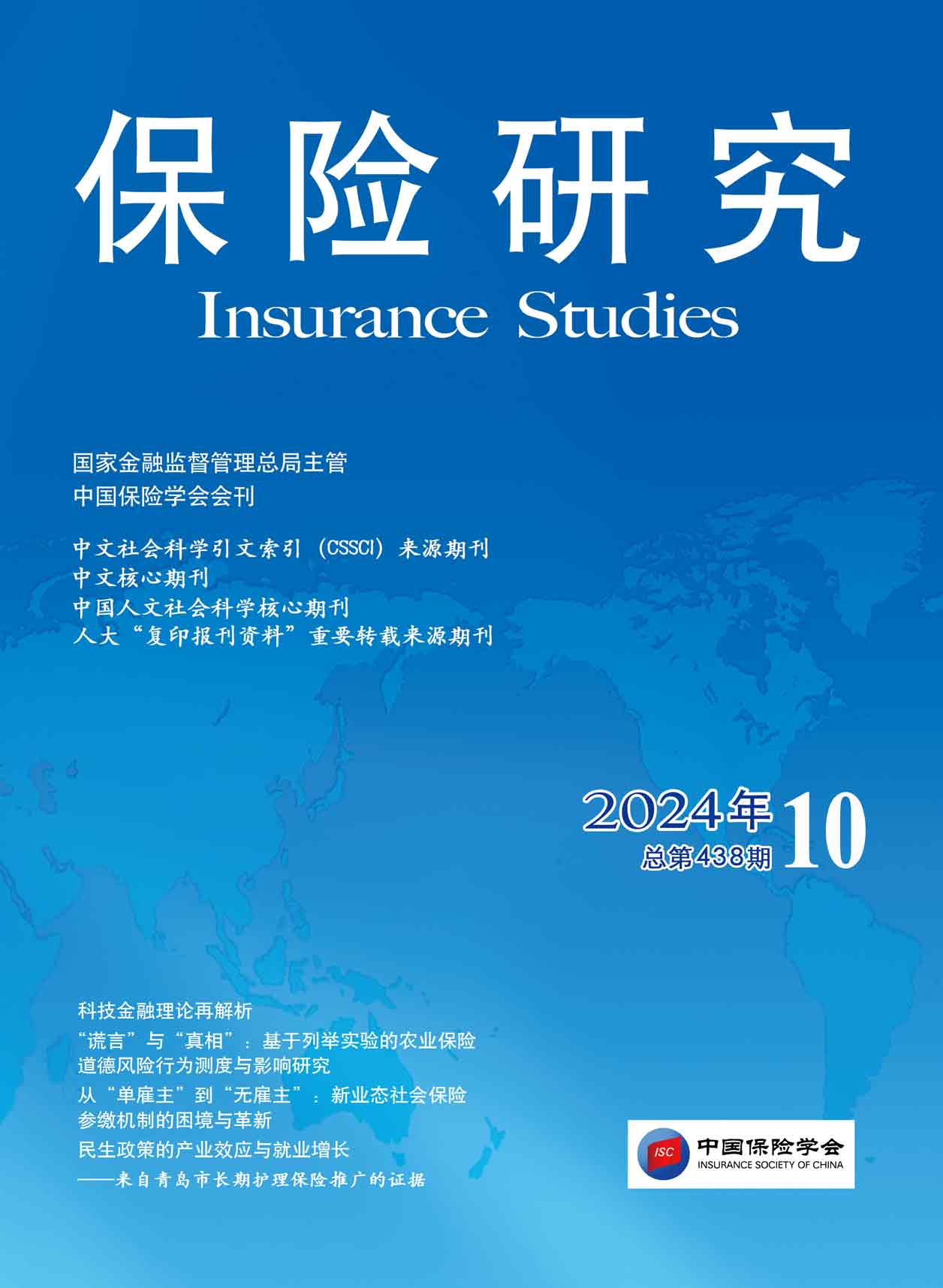
《保险研究》20241001-《科技金融理论再解析》(张明喜)

《保险研究》20241002-《重大慢性病与中国老年家庭财产消耗——兼论保险的调节效应》(刘靖、张晓慧、毛学峰)
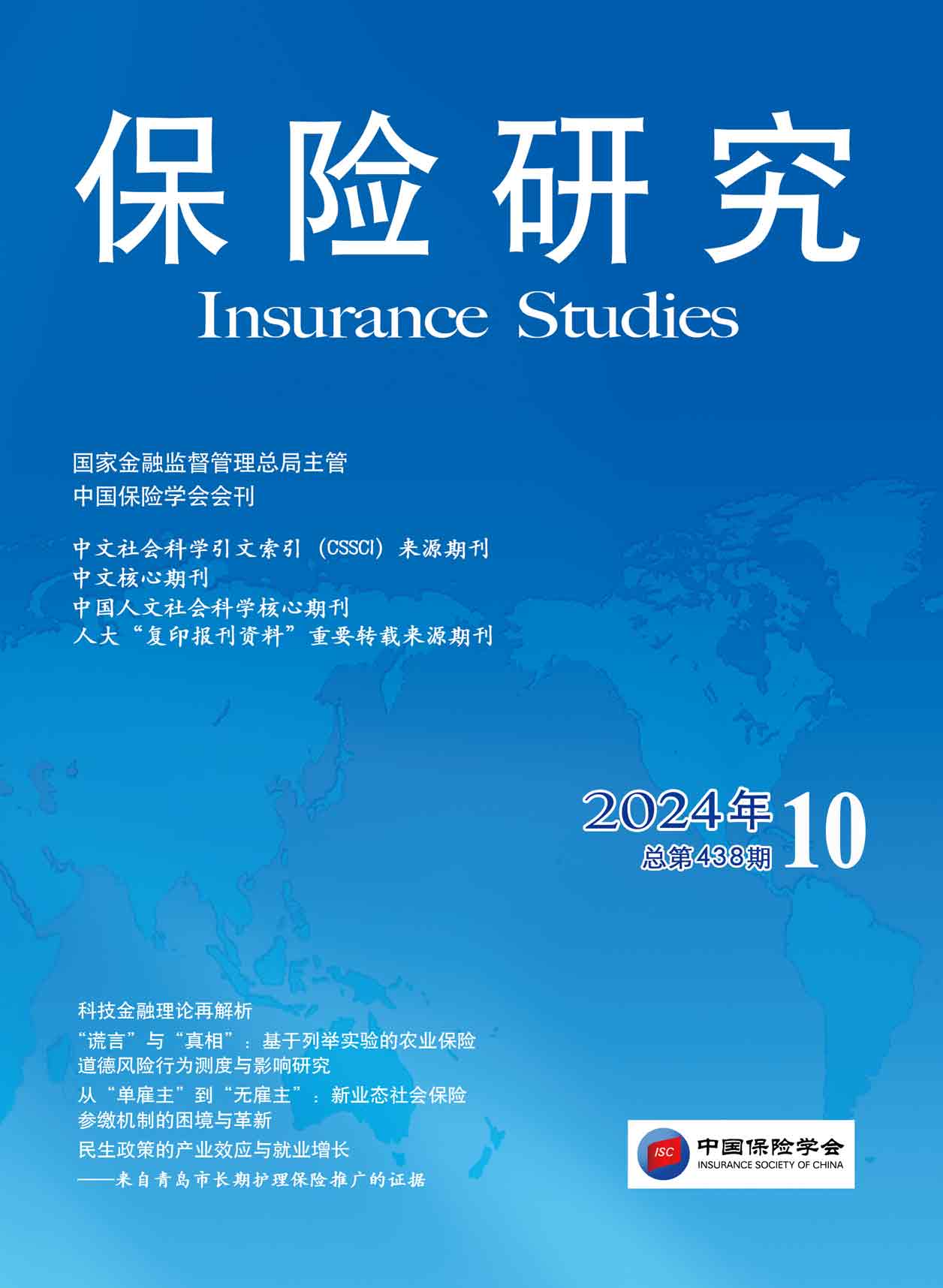
《保险研究》20241003-《监管问询函是否影响保险定价决策?——基于董事高管责任保险合约的经验证据》(徐一泽、李延胤、许荣)
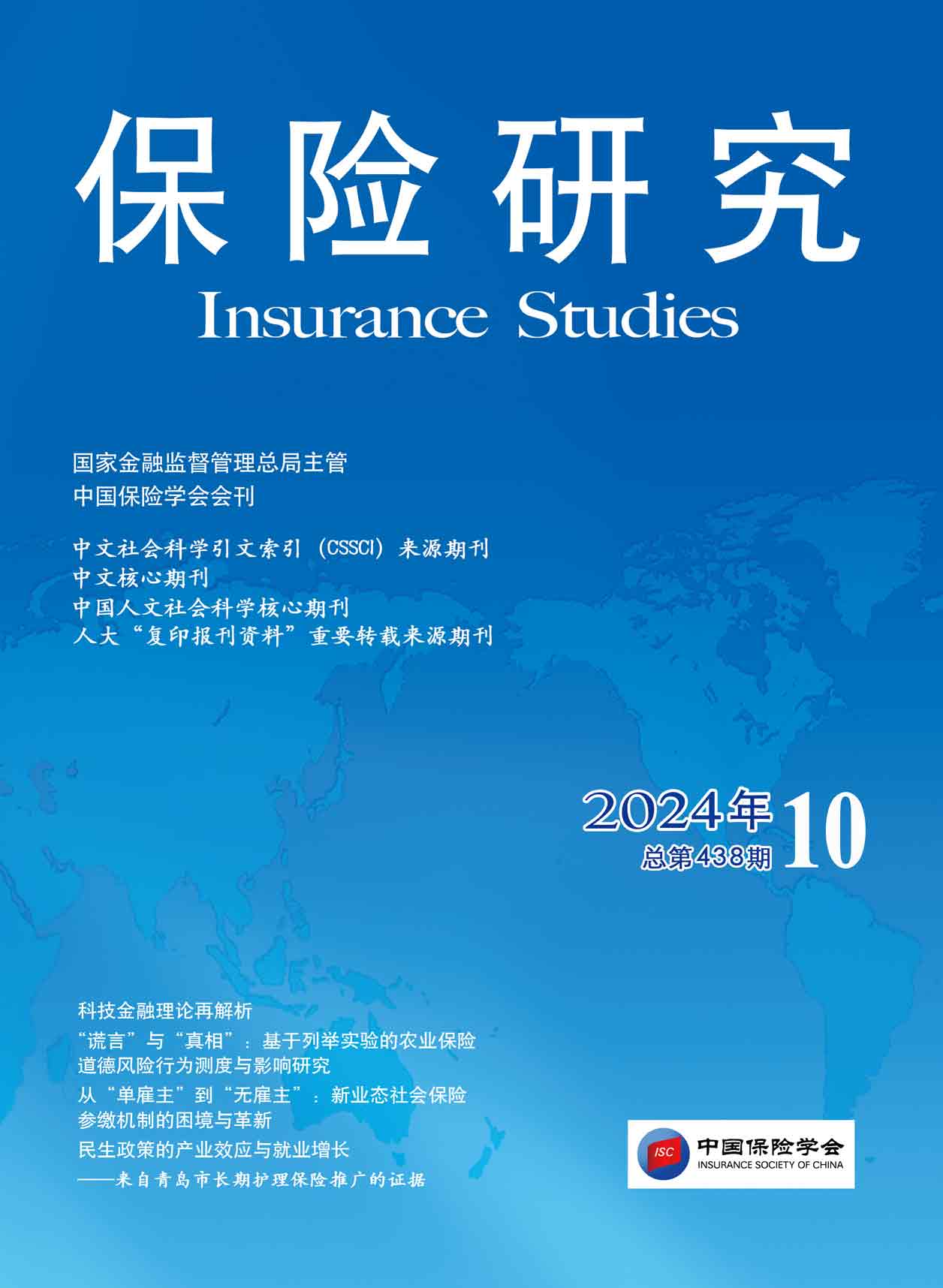
《保险研究》20241004-《增额终身寿险内嵌退保期权风险研究》(周书正、刘迪)

《保险研究》20241005-《基于两阶段分位数随机森林的非完全支付赔款预测》(李政宵、刘钰冰)
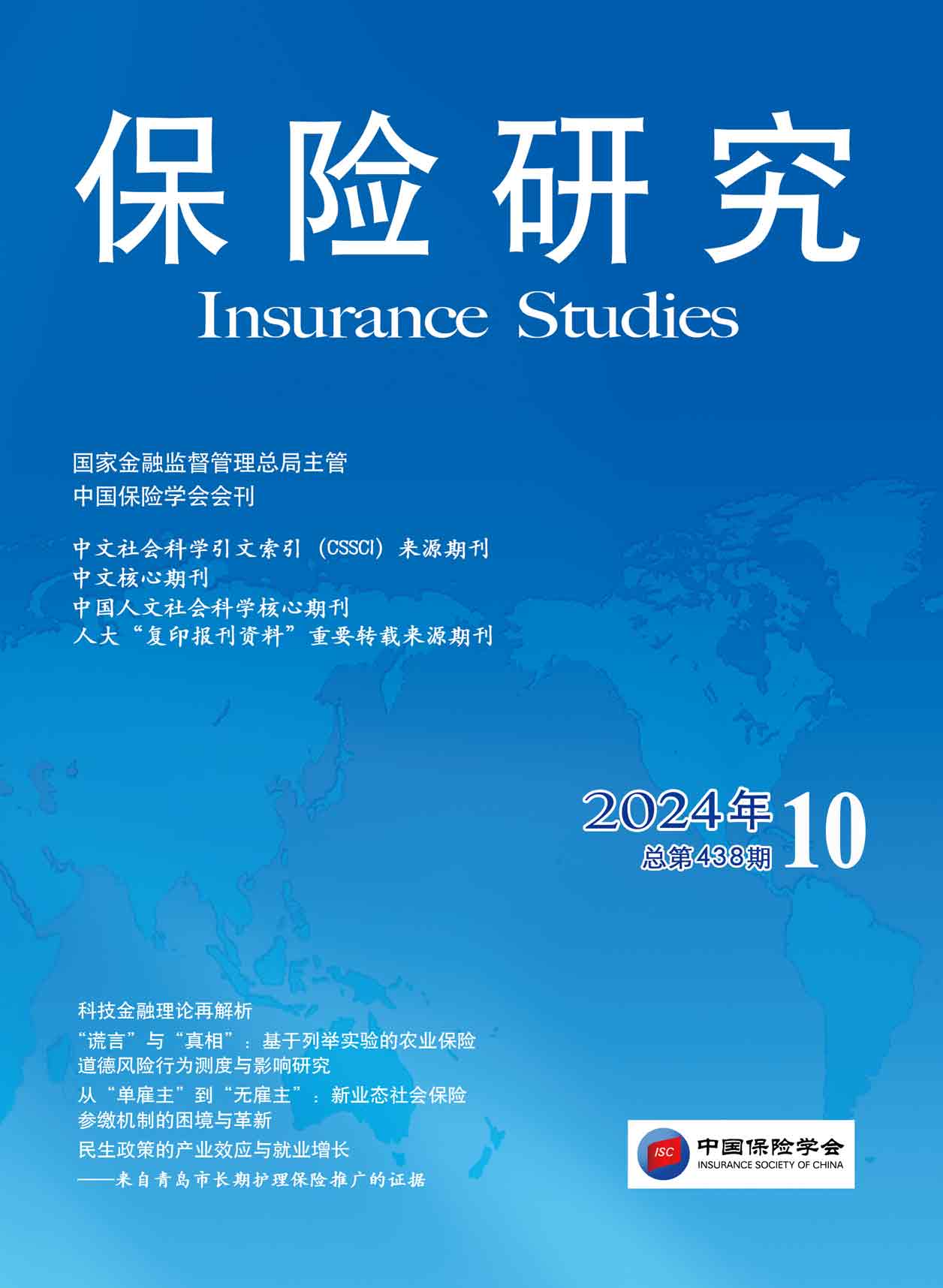
《保险研究》20241006-《“谎言”与“真相”:基于列举实验的农业保险道德风险行为测度与影响研究》(易福金、许晴、燕菲儿、胡鸣宇)
